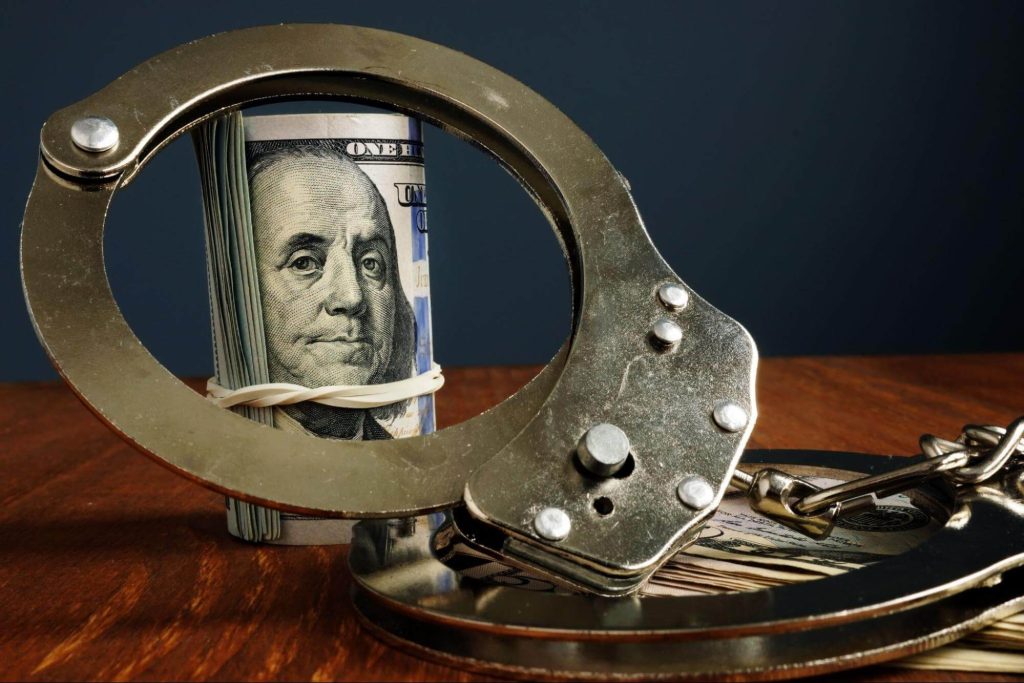Can You Go to Jail for Not Paying Bail Bonds?

When a defendant is granted bail, this comes with a large list of conditions. If any of these conditions are not meant, the judge will send the defendant back to jail. If this happens, the defendant will also lose their bail money. For this reason, anyone out on bail needs to be extremely careful to do exactly what they are supposed to do so as to not go back to jail or forfeit their bail money.
Also, you can go to jail for not paying your bail bond premiums. You need to be sure to clarify all your obligations to the bail bond company and to the judge before you take out a bond. Know everything you are agreeing to before signing on the dotted line.
What Is a Bail Bond, and How Do You Get One?
Simply put, a bail bond allows a criminal defendant to get out of jail, but in exchange, they must agree to appear for trial or be responsible for a sum of money that was set by the court. If you, a friend, or family member needs to post bail but can’t afford the amount, you can utilize a bail bond.
A bail bond is secured through a bail bond company. The company will require you to pay a nonrefundable premium to be released from jail. The bond company will then sign a surety bond with the court. This means that they agree that the defendant will appear in court at the specified time or owe the full bail amount to the court.
Bail bonds are a way to allow everyday people who don’t have tons of cash lying around to make bail. However, not everyone can afford the premium.
Most bail bond companies will offer a payment plan. This will spread out the payments over an agreed upon period of time.
Can You Go to Jail for Not Paying Bail Bonds?
If you fail to pay the monthly installment payments to the bail bond company, it’s possible the defendant will go back to jail. If the defendant or the cosigner fails to pay the premium, the bail bond company has several options. The first thing they can do is to go back to the court and tell the judge that they will no longer be responsible for the surety bond. After that, the defendant can be remanded back into custody by the bail bond company.
When you or a loved one agrees to pay the bail bond, this becomes a binding agreement. As soon as you sign the papers, you are responsible for the payments. It doesn’t matter whether the case is released or whether the defendant is found not guilty, you still have to make the payments. If you don’t make them, you are violating the contract. If the bond company doesn’t send you back to jail, they still might take you to civil court to demand the remainder of the payment.
What to Do If the Bond Company Doesn’t Cover You Anymore
If you have failed to pay, and the bond company no longer covers you, there are a few options. First, you can try to find a new bond company. Usually, a family member or friend needs to do this. However, you are still on the hook for the original bond payments, and a new company will need an explanation about why you failed to pay the original bond company.
A second option is to make a request through your attorney to lower the bail amount or for a release on a personal bond or recognizance. This could work if the defendant has already been good about attending court proceedings, and it looks like there will be minimal jail time. Keep in mind that neither of these options erases the original premium. The bail bond company will still be coming after it.
How to Make Sure You Don’t End Up Back in Jail for Failing to Pay a Bail Bond
This is really simple. Don’t bite off more than you can chew. Make sure you can actually make the payments that will be required for your bail bond. Make sure you read everything carefully and understand what you are agreeing to.If you have any questions about the bail process or are worried about your ability to pay for a bail bond, contact us at Just Bail Bonds today.


